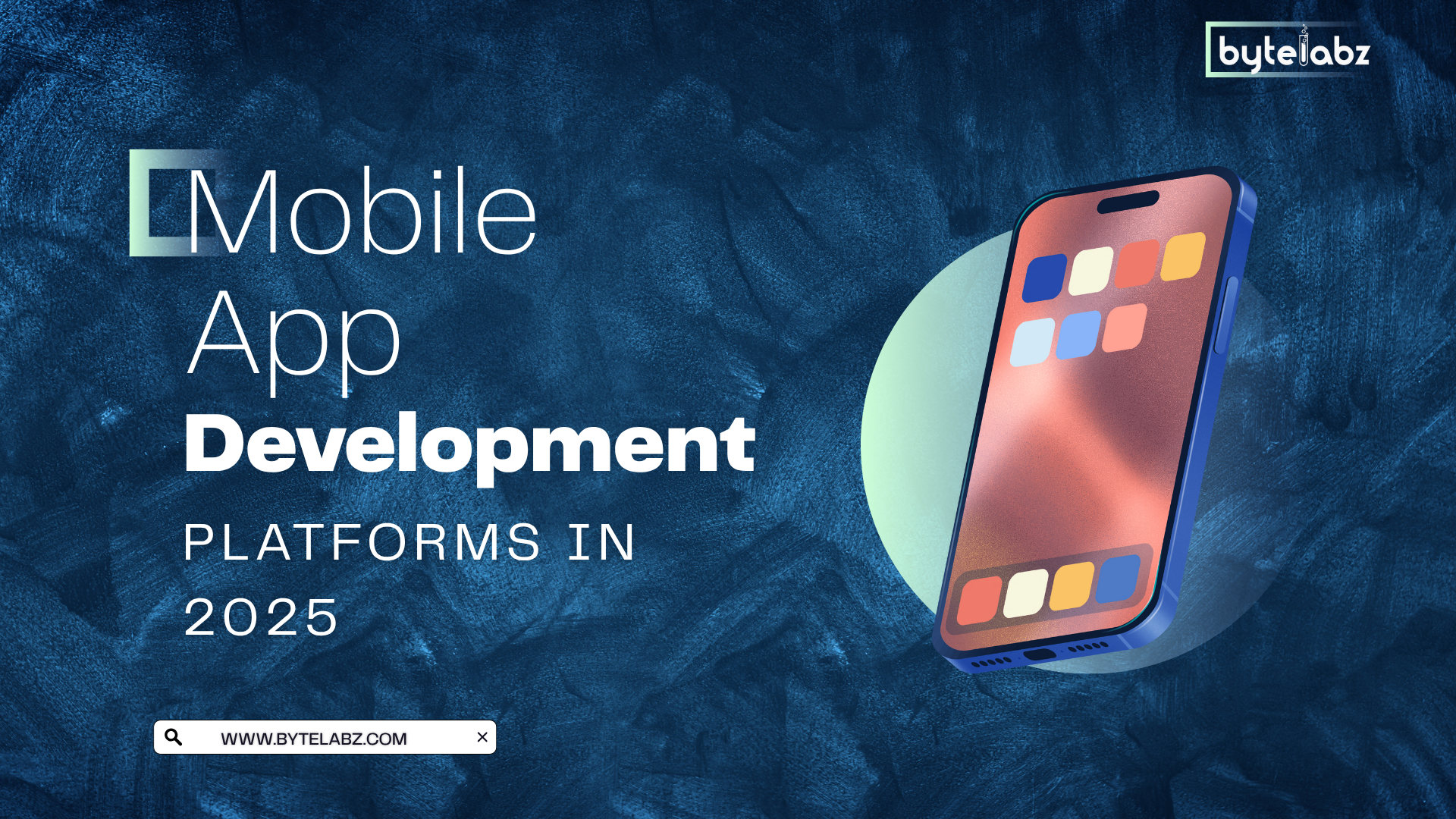What Are Mobile Application Development Platforms in 2025? An Overview & Comparison
If you’re thinking about building a mobile app in 2025, you’re in the right place. Whether you’re a startup founder, a business owner, or simply someone curious about the tech world, therefore, understanding the tools behind mobile apps is essential for making informed decisions.
In this blog, we’ll break down what Mobile Application Development Platforms are, what the top options are in 2025, and how to choose the best one for your project. n addition, we’ll discuss how this translates locally — especially for those looking for Mobile Application Development in Trivandrum or other parts of Kerala.
So, what exactly is a Mobile Application Development Platform (MADP)?
A Mobile Application Development Platform (MADP) is simply a set of tools and technologies that help developers create apps for smartphones and tablets. Think of it like a toolbox — it includes everything you need to build, test, and launch an app on platforms like Android, iOS, or even the web.
Some platforms are designed for developers who write code, while others are built to be more accessible to users with little or no coding experience — these are known as low-code or no-code platforms.
How to Plan, Design, and Build a Mobile App?
Creating an app can feel overwhelming, but by taking it one step at a time, it’s definitely doable. Here’s a simple way to understand the process:
1. Start With an Idea
First things first—what’s your app all about?
Ask yourself:
- What does my app do?
- Who is it for?
- What problem does it solve?
- What features does it really need?
- What’s my budget?
- Will I build it myself, hire someone, or use an app builder?
2. Do Market Research
After finalizing your idea, make sure to investigate whether a similar concept is already out there.
Find out:
- Who are your competitors?
- What makes your app different?
- Who’s your target audience?
- Will it be for iPhone, Android, or both?
- How will you promote it?
3. Design the User Experience (UX)
Now it’s time to think about how your app will look and feel.
Start by:
- Sketching some rough screens (you don’t need to be an artist).
- Creating simple wireframes (like a blueprint).
- Mapping out how users move from screen to screen.
4. Start Development
Now the real building begins!
Here’s what to keep in mind:
- Choose how you’ll build the app (native, cross-platform, app builder, etc.).
- Put together a team (or go solo if you’re up for it).
- Set timelines and small goals.
- Be flexible—things might change along the way.
Depending on your app, this stage could take anywhere from a few weeks to several months. Simpler apps are faster and cheaper to build, while more complex ones need more time and resources.
5. Test Everything
Before you launch, make sure your app works properly.
Here’s how to test smartly:
- Check for bugs and glitches.
- Test on different devices and screen sizes.
- Run it on both iOS and Android.
- Get feedback from real users.
6. Keep Improving
Launching your app isn’t the end—it’s just the beginning. Keep listening to your users and keep improving your app based on their feedback.
Top Mobile App Development Platforms in 2025
Let’s break down the most popular platforms — in simple terms.
- Flutter (by Google)
- What it is: A powerful tool to build apps for both Android and iOS using a single codebase.
- Good for: Beautiful designs, smooth animations, fast development.
- Used by: Startups, companies who want apps that look great on both platforms.
- Best feature: You can build one app that works on many platforms.
- React Native (by Meta / Facebook)
- What it is: A framework that uses JavaScript to build apps for Android and iOS.
- Good for: Teams who already know web development.
- Used by: Businesses that want quicker development and cross-platform support.
- Best feature: Huge community and plugin support.
- Swift & SwiftUI (Apple)
- What it is: Apple’s native language and UI toolkit for iOS apps.
- Good for: High-performance apps on iPhones and iPads.
- Used by: Businesses focused only on Apple devices.
- Best feature: Full access to the latest iOS features.
- Kotlin Multiplatform (KMM)
- What it is: A way to share common code between Android and iOS apps.
- Good for: Apps that need performance and native features.
- Used by: Tech companies who want the best of both worlds.
- Best feature: Shared logic, but native UI.
- Ionic / Hybrid Frameworks
- What it is: Tools to build mobile apps using web technologies (HTML, CSS, JavaScript).
- Good for: Simple apps, quick MVPs.
- Used by: Small businesses, internal tools, non-tech founders.
- Best feature: Web developers can easily create mobile apps.
- No-Code / Low-Code Tools (like FlutterFlow, Appgyver, Appy Pie)
- What it is: Platforms where you can build apps visually, with little or no coding.
- Good for: Quick prototypes, small businesses, early-stage ideas.
- Used by: Non-developers, freelancers, small teams.
- Best feature: Drag and drop interface — no tech skills needed.
How to Choose the Right Platform?
Here are a few simple questions to help you decide:| Question | What to Consider |
| Do you need both Android and iOS apps? | Choose Flutter or React Native. |
| Is budget a concern? | Consider no-code or hybrid options. |
| Do you want the best performance? | Go with Swift (iOS) or Kotlin (Android). |
| Is your app very simple? | Use Ionic or no-code tools. |
| Do you have web developers on your team? | Try React Native or Ionic. |
| Want help from a local team in Kerala? | Look for companies offering Mobile Application Development in Trivandrum with experience in multiple platforms. |
Why Mobile Application Development in Trivandrum Is Booming?
Trivandrum (Thiruvananthapuram), being a tech hub with Technopark and a growing startup ecosystem, has become a great place for mobile app development. Local companies offer:- Competitive pricing
- Skilled developers (Flutter, React Native, native iOS/Android, and more)
- Faster communication if you’re based in India or the Middle East
- Experience in building apps for startups, enterprises, and global clients
Why Should You Care?
If you’re a business in Trivandrum, a startup founder, or working on a digital idea — your choice of development platform affects:- The cost of the app
- How fast it can be built
- How well it works on different devices
- How easy it is to maintain
| If You Want… | Choose |
| Beautiful, fast apps on both platforms | Flutter |
| To reuse web developer skills | React Native or Ionic |
| An Apple-only app | SwiftUI |
| Fast and simple app with no code | FlutterFlow, Appgyver, etc. |
| A local partner to help build your app | Look for Mobile App Developers in Trivandrum |
Ready to Build Your App? Let Bytelabz Help You Succeed!
Whether you’re launching a new business, scaling an existing one, or just bringing your idea to life — Bytelabz is here to help you every step of the way.As a trusted name in Mobile Application Development in Trivandrum, we specialize in creating high-performance, user-friendly apps across platforms — from Flutter to React Native, native iOS/Android, and even no-code solutions. Our team combines creativity, strategy, and technology to deliver apps that don’t just work — they grow your business.
Contact Us to get a free consultation or request a quote today!
Your app idea deserves the right team. Let’s build it together!
FAQ’s
1. Do you develop apps for both Android and iOS?
Yes, we specialize in creating apps for both Android and iOS platforms. Depending on your requirements, we can build native apps or cross-platform solutions that run seamlessly on multiple devices.
2. Will you help with publishing the app to the App Store and Google Play?
Absolutely. Our team takes care of the complete launch process, including preparing app store listings, ensuring compliance with guidelines, and publishing your app on Google Play and Apple’s App Store.
3. Do you provide support and updates after the app is launched?
Yes, we offer ongoing maintenance and support services to keep your app secure, bug-free, and up to date with the latest technologies. This ensures your app continues to deliver the best user experience.


